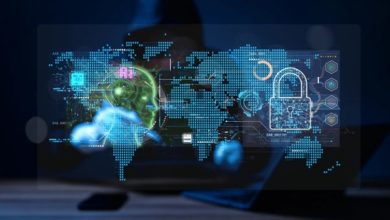Harnessing AI to Reinforce Security and Identity Across Multiple Sectors

By Ramesh Songukrishnasamy, Senior Vice President and Chief Technology Officer at HID
As the digital landscape evolves, security threats are becoming increasingly sophisticated and driving the need for innovative solutions to protect identities and access systems.
Integrating artificial intelligence (AI) into secure identity technologies can help enhance both security and user experience. With AI’s rapid advancement, it can be leveraged to augment authentication, access control and identity verification to help organisations remain resilient against the rising tide of cyber threats.
AI-driven innovations in identity security
AI and AI agents are revolutionising the security and identity industry by embedding intelligent, automated capabilities across various solutions.
Advanced identity verification services leverage AI-driven decision-making to enable real-time authentication, helping businesses and governments verify users with unprecedented speed and accuracy. By integrating AI into these processes, organisations can significantly reduce reliance on manual verification and minimise fraud risks while ensuring seamless and secure identity authentication in high-security environments.
Biometric security solutions also benefit from AI-driven presentation attack detection (PAD), strengthening fingerprint and facial recognition technologies against sophisticated spoofing attempts. As biometric authentication becomes the preferred method for secure access, AI plays a crucial role in enhancing accuracy, adaptability and reliability.
Beyond biometrics, AI-powered indoor location services can help improve security and operational efficiency by enabling precise tracking of people and assets within controlled environments. These AI-driven solutions are particularly valuable in sectors such as healthcare, government and enterprise security, where precision, reliability and compliance are crucial.
According to the 2025 State of Security and Identity Report from HID, 64 per cent of security leaders globally are using or planning to implement AI-powered solutions for security purposes, citing benefits such as improved threat detection, operational efficiency and scalability.
In Asia Pacific, 76 per cent of security leaders are currently implementing or planning to implement AI-power solutions for their organisations, according to the report.
Among the biggest challenges that security leaders are concerned with when adopting AI solutions are: security and privacy concerns with AI (41 per cent), trust in AI reliability and accuracy (35 per cent), cost of implementation (35 per cent), and concerns about AI in decision making transparency (29 per cent).
Enhancing access control and digital identity management with AI
Beyond authentication, AI is revolutionising access control and digital identity management. AI can be harnessed as a critical tool for increasing security, streamlining usability and simplifying the deployment of access control solutions.
One of AI’s most powerful applications is anomaly detection which identifies and responds to security breaches, such as unauthorised tailgating through secure entryways.
AI also enhances interoperability by linking multiple identity systems to reduce the need for repeated authentication while improving overall security awareness. This integration ensures that identity credentials remain consistent across various platforms to help minimise potential security gaps.
AI-driven natural language interfaces simplify the configuration, maintenance and troubleshooting of security systems to help make deployment more efficient. AI chatbots and virtual assistants can help security teams quickly configure systems, identify potential issues and provide real-time solutions.
Additionally, AI-powered predictive maintenance tools can proactively identify and resolve security system vulnerabilities before they become critical issues, hence ensuring organisations maintain a high level of security at all times.
Addressing data privacy, ethics and compliance in AI security
With the rise of AI-driven security solutions comes the responsibility to uphold data privacy, ethical AI usage and regulatory compliance.
Privacy-by-design and security-by-design principles can be integrated across the product lifecycle, ensuring its solutions align with global privacy regulations. These principles ensure that AI-powered solutions are designed with security at their core, rather than as an afterthought.
While some vendors do not manage customer data directly, they can offer tools that empower organisations to meet stringent compliance requirements.
For example, a global privacy policy outlines how an organisation collects, uses and protects personal data worldwide, which helps reinforce trust in AI-powered identity solutions; while a clear AI use policy or internal guidelines can be implemented to govern responsible AI adoption and ensure compliance with ethical standards and legal frameworks. These guidelines ensure that AI applications do not inadvertently introduce biases, compromise user privacy or violate regulatory mandates.
AI is only as good as the data it is trained on. To mitigate risks related to biased algorithms and unintended discrimination, AI models must be tested with diverse datasets that reflect the real-world demographics and use cases of customers. This approach helps organisations comply with regulations such as the General Data Protection Regulation (GDPR) and other regional data protection laws while fostering trust among end-users.
Scalable AI-powered security for government and enterprises
AI integration can be extended across diverse sectors, from government institutions to enterprise environments, to support scalable security implementations tailored to specific industry needs. AI-driven identity verification, biometric authentication and real-time access control are becoming fundamental elements of secure digital transformation strategies for organisations worldwide.
For instance, advanced facial biometric solutions van help enhance identity verification at airports to streamline passenger authentication while ensuring high security standards. In enterprise settings, fingerprint and facial recognition sensors, when combined with RFID technologies, can enable multi-factor access control to strengthen security without compromising convenience.
Government agencies are also increasingly leveraging AI-powered security solutions to enhance national security, protect critical infrastructure and manage citizen identities. AI-driven digital identity verification solutions are enabling more secure and efficient identity issuance processes, thereby reducing fraud and improving service delivery.
Future AI trends in security and identity
Looking ahead, AI will continue to shape the future of security and identity in several key areas:
- AI-driven threat detection: Increasing reliance on AI for proactive threat identification and mitigation. AI-powered security analytics can help enterprises detect and respond to cyber threats in real time to significantly reduce response times and mitigate risks before they escalate.
- Advanced biometric authentication: AI-powered biometrics will become more sophisticated, to help improve authentication accuracy and user convenience while reducing the risk of identity fraud.
- Unified security platforms: AI will enable centralised control of multiple security systems, making it easier for enterprises to manage access control, identity verification and authentication processes across various locations.
- Agentic AI for automation: Organisations will increasingly rely on AI assistants to automate security protocols, reduce administrative burden and enhance operational efficiency.
As AI adoption accelerates, the industry must address ongoing concerns around data privacy and ethical AI usage to enable broader acceptance and deployment of AI-driven security technologies. The security and identity industry is committed to advancing AI-powered identity security while ensuring responsible and compliant AI integration across its solutions.
Pioneering the future of AI-powered security
AI is redefining the way organisations approach identity security. By continuously innovating and integrating AI into security solutions, businesses and governments can stay ahead of emerging threats while enhancing operational efficiency.
For organisations looking to adopt AI-powered identity security solutions, they should embark on a roadmap to a future where security is not just robust but also intelligent and adaptive. As AI-driven security solutions evolve, a seamless balance between security, usability and compliance is paramount.




